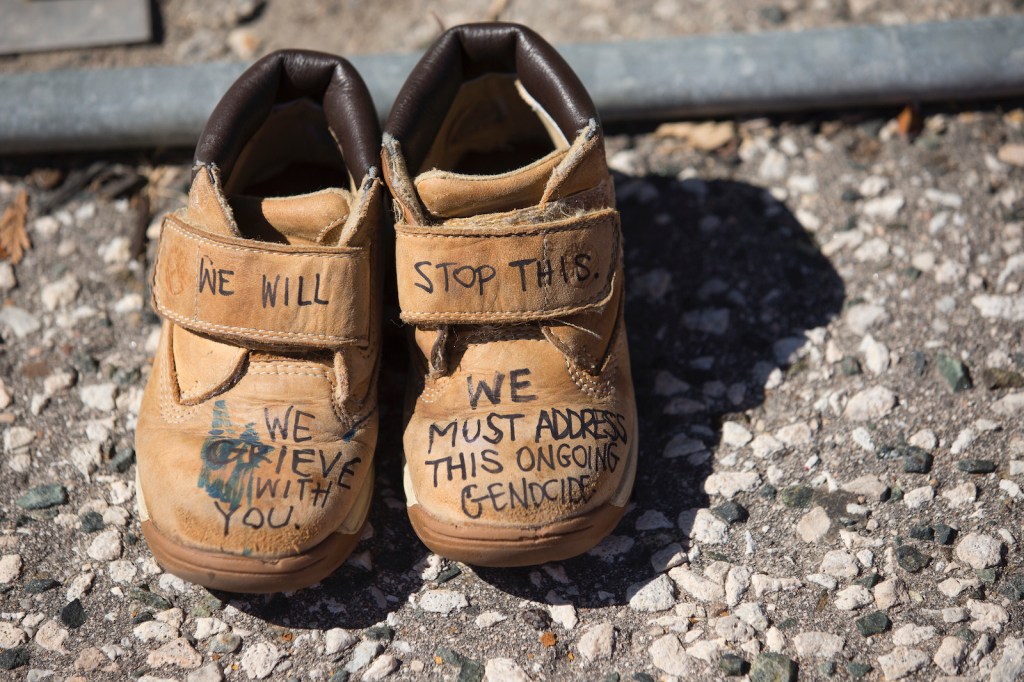Back in December 2011, while producing an article about the state of First Nations women in Canada we interviewed Anishinaabe activist Audrey Huntley. She gave us some valuable insights into Vancouver’s infamous crime and drug-riddled Eastside, then told us something we couldn’t believe: “I have a friend who went to the cops in 1998 and told them about Robert Pickton’s whole farm. They called her a ‘junkie ho.’” For the record, police didn’t catch Pickton, the so-called “Pig Farmer Killer,” until 2002.
Not only was her friend right, but now she’s backed up by the recently released missing women inquiry, undertaken by former B.C. Appeal Court Justice and B.C. Attorney-General Wally Oppal, which found some pretty damning evidence of gross negligence on the part of cops during the investigation of Pickton. As in, they were outright told about a psycho who was killing prostitutes on his pig farm in Port Coquitlam and they did absolutely nothing about it.
Videos by VICE
The report was spurred on by public complaints against the mishandling of the Pickton case by the Vancouver Police Department and the RCMP. After two years of proceedings it’s now a 1,448-page document (and obviously a total bummer), so we decided to give you some of Oppal’s more important findings to spare you the details:
Oppal delivering his report to the public.
- Between 1998 and 1999, four people told police about Pickton’s alleged activities. Informant Lynn Ellingsen even said she saw Pickton butchering a woman in his slaughterhouse. Apparently Police didn’t act because these witnesses were potential drug addicts and often changed their stories.
- Police failed to connect the huge and very obvious dots. When Pickton was charged with the attempted murder of a sex worker in 1997, an episode which somehow was not considered a warning sign for cops when he was then implicated as a serial killer by four people in 1998.
- Some senior VPD officials refused to consider there was a serial killer in their midst even when their own officer, geographic profiler Kim Rossmo, theorized it as early as 1998 and wanted to warn the public about it.
- When the families of missing women attempted to file missing person reports they faced what Oppal called “degrading and insensitive treatment” by police. In some cases they were told their daughters were transient drug addicts, probably perfectly fine, or on vacation and out partying.
- In 1998 when an officer was first assigned to investigate the disappearance of women in Vancouver’s Dowtown Eastside, the officer didn’t even have a computer, nor experience investigating a homicide.
- By 2001, when an actual task force had finally been established to investigate missing-women’s cases, investigators operated under the naïve assumption that women had actually stopped disappearing (which was very far from the truth).
- Apparently there was what can only be characterized as an unprofessional lack of cooperation between the VPD and the RCMP. Doug LePard, the VPD deputy chief, testified that his department considered Pickton their top suspect, but didn’t pursue him because he was in RCMP territory. Oppal called bullshit, citing things like the possibility of Pickton being an unholy serial murderer trumping any regional technicalities. In other words, they probably should’ve grown a pair and made the arrest with the RCMP.
Besides those embarrassing mistakes, Oppal also provided 63 key recommendations going forward that the Province of B.C. and its police forces should strongly consider in light of their colossal failure to deal with Pickton. Among them is the establishment of a Greater Vancouver regional police force, sensitivity training for cops on aboriginal culture and history, the funding of 24-hour emergency centers for women in the sex trade, a compensation fund for the children of missing women, and interestingly, the creation of a shuttle bus service to aid female hitchhikers along Highway 16 (the so-called Highway of Tears) where some sources we’ve spoken to believe as many as three serial killers are operating today.
While Oppal’s recommendations seem to present the possibility of groundbreaking changes in B.C., and his findings are the first scathing indictment of systemic police bias, it’s important to note that what happened there isn’t simply a British Columbian issue. Violence against aboriginal women (and rural women for that matter) is no isolated phenomenon, but a broader issue that we all need to wake-up and acknowledge. Not only were a majority of Pickton’s victims aboriginal women, but it speaks to a larger, equally startling statistic: they’re five times more likely to die as a result of violence than anybody else in all of Canada.
Oppal’s report has brought about the first acknowledgement from the government that they’re failing aboriginal women (the report even forced the VPD to publicly apologize). Hopefully this will serve as the framework for a national policy to combat pervasive racism. Oppal put it best: “the missing and murdered women were forsaken twice: once by society at large and again by the police.”
Itching for more Canadian crime writing?
This Anonymous Blogger Loves to Out Western Canadian Gangsters
A Jailbait Loving Perv Destroyed Amanda Todd’s Life
Follow Ben on Twitter: @BMakuch



